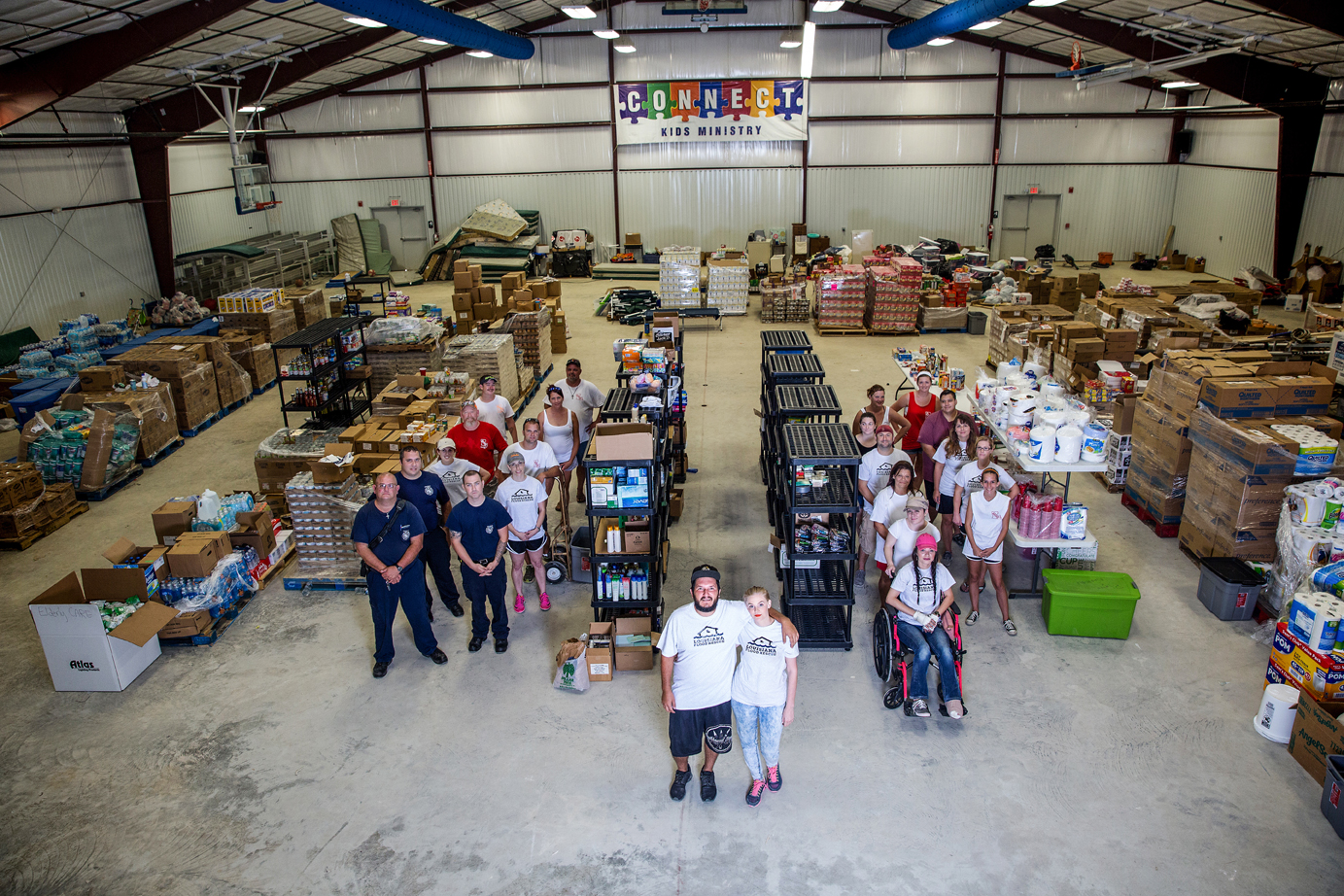
How a Facebook group started during the August 2016 flood saved thousands of people
Before the flood, Anthony Cox and Margo Clark lived in New Orleans.
Cox drove to his parents’ home in Central early the morning of Friday, Aug. 12, to help them ride out some unusually rainy weather.
The 33-year-old only brought an extra pair of jeans and two T-shirts, thinking he’d be back home with his girlfriend Clark the next day after things cleared up.
|
|
Instead, he spent two days evacuating both his grandparents and parents as chest-deep water closed in on their homes.
Back in New Orleans, Clark watched what was happening from afar. Realizing the magnitude of people who would be stranded, the couple started a Facebook group called Louisiana Flood Rescue. They knew people leading boat rescues, and they hoped the group could be a place for rescuers to connect with those who were stranded.
With AT&T cell service down, the group quickly morphed into an invaluable resource for thousands of Louisianans. As the flooding spread over the next several days, the group went viral, ballooning from 1,000 members to 10,000 and ultimately nearing 45,000.
The pleas for help were posted as rapidly as the water itself was rising: a 71-year-old dialysis patient trapped and needing transportation to the hospital. A woman whose daughter had been stranded in her car for four days and was becoming severely depressed. A boy having seizures. A cat trapped alone in a house where the water was up to the roof.
Some of the group’s volunteers built a map compiling addresses and info of people who were trapped. Once a person was rescued, they could be marked “safe” on the map.

“The map system got to the point where first responders in helicopters were calling Margo,” Cox says. “I really do think if we hadn’t created this group there would be more people possibly dead or injured, because there was no sounding of the alarms … if people had just waited to be saved, lots of people wouldn’t be here today.”
As the water began to recede over the next few days and the life-and-death urgency of the rescues died down, Cox and Clark joined the hundreds of thousands of people left to survey the damage. Both of their families lost homes.
They immediately decided to terminate their lease in New Orleans and stay in Baton Rouge. Manning the Facebook group, they saw firsthand just how many people would need additional help rebuilding their lives.
Two weeks after the flooding began, Cox and Clark sit in a makeshift office they’re running out of a friend’s karate studio. The small, dimly lit space is packed with piles of diapers, toiletries, clothes, non-perishable goods and cleaning supplies.
“In the beginning, our reason for doing this was just to help a few people,” Clark, 30, says. “We never thought it would turn into this.”
“This” has turned into the couple regularly pulling 18- to 20-hour days to moderate the still-very-active Facebook group and shifting its focus from rescues to recovery. Working with volunteers they met through the group, they’ve been collecting and organizing thousands of donations.
When they do sleep, it’s on either a friend’s couch or the air mattress and tent they set up at the karate studio.
“People are putting their personal lives on hold right now,” Clark says. “Something as simple as having a bowl of cereal for breakfast is such a far stretch from normality right now.”
As exhausting as the days have been, they’ve also been rewarding. The other day, a woman came into the donation center and burst into tears when she recognized Clark. “You helped save five family members of mine,” she told her.
Cox is quick to point out that he and Clark aren’t the only ones doing the heavy lifting. They have volunteers working alongside them every day, not to mention the massive community that posts on the Facebook group. “I am not the person responsible for all the efforts—the community is who is responsible for that,” he says. “We just happen to be a connecting point.”
He glances at Clark, who is typing away on her laptop. One of the group members sent a message about an elderly woman who’s been sleeping on her wet mattress as mold grows around her. They’ve seen similar messages since they started the group.
But with a look of determination on her face, Clark is already working on finding a place for the woman to stay.
“As much as people want to talk trash about the new generation, social media—this useless piece of technology—saved thousands of lives,” Cox says.
In late August, the group’s volunteers find new reasons to celebrate. Louisiana Flood Rescue has qualified for non-profit status, and they’ll be moving their office to a much larger space at Life Tabernacle Church in Baker.
And they’ll have no problem getting the word out about their new non-profit and donation space—they’ve already got 45,000 friends on Facebook.
This story was originally published in the October issue of 225 Magazine.
|
|
|

